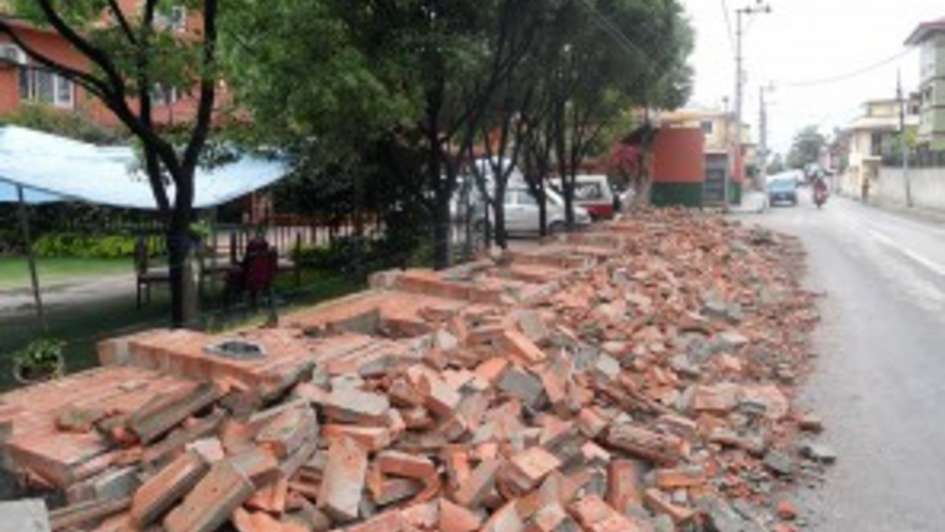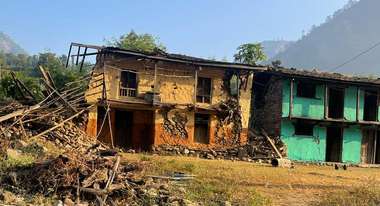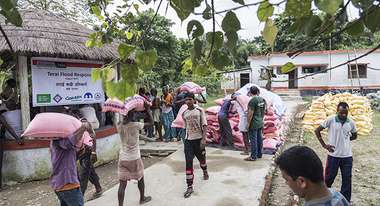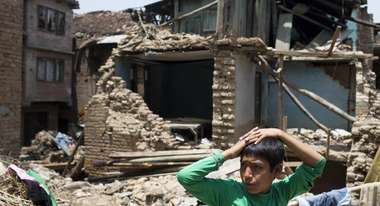The Earth Kept Shaking Throughout the Night
In 2015 Francesca travelled to Nepal to support emergency response team of Welthungerhilfe. During her first night, aftershocks kept her awake.

Francesca travelled from India to Nepal to support our colleagues in emergency response. Here she continuously reports on what is happening.
Sleep is a luxury. As it seems food and water are too. We miraculously managed, thanks to Barbara, to find two rooms in a hotel room not far from the Welthungerhilfe office. I am sharing it with Birgit Zeitler who is here as a member of Welthungerhilfe emergency team. Not being alone makes me feel safer considering last evenings strong tremor – and the earth kept shaking throughout the night.
While all the hotel guests ran out – in pyjamas and barefoot – after tremor heavily shook the floor around 10 pm, things were less panicky during the night. The first tremor got us out of bed, but not out of the room. During the second I was awake, but didn’t move. I slept through the third.
Undoubtedly though, this feeling of insecurity, the perceived need of having to constantly be alert – aggravated by the lack of power we had for most of the night – is not really conducive for a good night’s sleep.
I slept with my glasses on, in case I had to again suddenly run out. If on the third day this is how it still feels, I am not surprised that thousands of people sleep on the street. At least we had breakfast this morning; this is certainly not the case for most of them out there.
Water and hygiene most emerging issues
Now I sit with Birgit and Rüdiger Ehrler, both experienced members of Welthungerhilfe emergency team, and Barbara Zilly, country director Nepal, in front of a map, the laptop on the table. We are waiting for 5000 tarpaulin from Dubai. There are problems for planes to land because airport is congested so at the moment we get less than what we planned.
The emergency team already talked to people and got a first impression: The population is still very scared, most sleep outside, water supply is not sufficient, electricity unstable, the hygiene conditions are getting worse. We are working in close coordination with United Nations organisations, local partners and government institutions to avoid overlapping. In a meeting with Alliance2015 partners Helvetas and People in Need it becomes even more clear: Water is one of the most urgent needs, hygiene an emerging problem!
Many people are leaving Katmandhu trying to find areas with more resources. Diarrhea is already observed. The Government has decided to do collective cremations to avoid spreading of diseases from dead bodies – even if the family is not around. The hygienic conditions are poor but people are too scared to go back home – because of aftershocks. Of course, food is also an issue. In Kathmandu, stores are open but crowded. How is the situation in remote areas where 60 to 70 per cent of population are estimated to be affected by the earthquake? Many of them have not been reached yet, thus casualty numbers will increase dramatically.
It is still raining. People in Kathmandu and in remote areas need the tarpaulin. Let´s hope we get them as soon as possible.







